
Many years ago, people started observing that sweet thorn (Vachellia karroo) was gradually migrating out of its known habitats in a westerly direction in the Eastern Cape. A simultaneous westerly spread of kudu into areas where they were previously unknown was attributed largely to this phenomenon.
THE ROLE OF CLIMATE CHANGE
Scientists suspect that global warming, and particularly warmer temperatures, have triggered and accommodated this westerly expansion of V. karroo. The saplings and seedlings of this species are vulnerable to cold nights and are killed off at what is known as the critical elimination temperature. Several nights in succession of temperatures at this level will kill the saplings and seedlings, whereas just one or two nights of these low temperatures will enable a percentage of the plants to survive.
With global warming, very low temperatures do occur from time to time, but the number of consecutive nights that reach the elimination temperature has decreased. The result is that a portion of young plants can survive and take advantage of the opportunity to establish themselves and reach maturity. Larger and mature plants are significantly less sensitive to the elimination temperature.
V. karroo has also increased in density over large areas of the Eastern Cape. Prof Tim O’Connor and his co-workers published a paper in 2014 in the Journal of the Grassland Society of Southern Africa, where they presented photographic evidence of the species increasing in density in the King William’s Town area over a period of 53 years.
This story is from the July 31, 2020 edition of Farmer's Weekly.
Start your 7-day Magzter GOLD free trial to access thousands of curated premium stories, and 8,500+ magazines and newspapers.
Already a subscriber ? Sign In
This story is from the July 31, 2020 edition of Farmer's Weekly.
Start your 7-day Magzter GOLD free trial to access thousands of curated premium stories, and 8,500+ magazines and newspapers.
Already a subscriber? Sign In
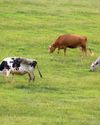
Africa goes from net carbon sink to source
New research shows Africa's impact on greenhouse gases and the need to focus on climate-smart agriculture
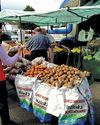
Ireland potato farmers unable to complete planting
Irish potato farmers have reported a delay in harvest and said that the UK might have to prepare for shortages of the produce. The shortfall is due to extreme wet weather during their planting season.
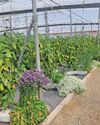
Zero-residue fresh produce a reality
Retail giants are calling for caution when using biologicals and chemical pesticides,

Big boost for mohair producers in Eastern Cape
A collaboration between the Eastern Cape Development Corporation (ECDC) and the Mohair Empowerment Trust (MET) has resulted in a R1,4 million injection into four emerging Angora goat farming operations in the Eastern Cape.
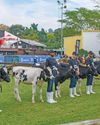
KZN Youth Show at Roval Agricultural Exhibition
The KZN Youth Show will run from Friday, 24 May to Sunday, 26 May at the Royal Showgrounds in Pietermaritzburg.
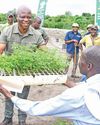
Hemp permits and irrigation system handed over
In an effort to fast-track the entry of rural farmers into the cannabis and hemp industries, KwaZuluNatal Minister for Agriculture and Rural Development, Super Zuma, visited the Shukasibheme Project in Mbazwana, a co-operative in Mseleni, uMhlabuyalingana in the Umkhanyakude District, to hand over cannabis and hemp permits as well as a borehole and irrigation system.

Meet some of the heroes behind avitourism destinations
Exploring what the Garden Route offers birdwatchers, Brian Berkman discovers some special people who run hospitable places to meet and see a variety of species.
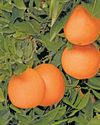
What the Citrus Academy offers aspiring producers
Cobus du Plessis takes a look at the Citrus Growers' Association of Southern Africa's Citrus Academy and how it is helping to develop aspiring farmers in the sector.
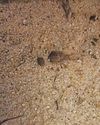
Natural-born killers of the insect world
The Myrmeleontidae family of lacewings from the Neuroptera order of insects consists of about 2 000 species of which 125 are found in South Africa.
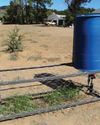
Seeder kick-starts vegetation in challenging environments
Dr George Craven of Noorspoort, Steytlerville, in the south-eastern Karoo, is successfully using a home-built 'bedstead seeder' to re-establish veld plants in an arid area, writes Roelof Bezuidenhout.